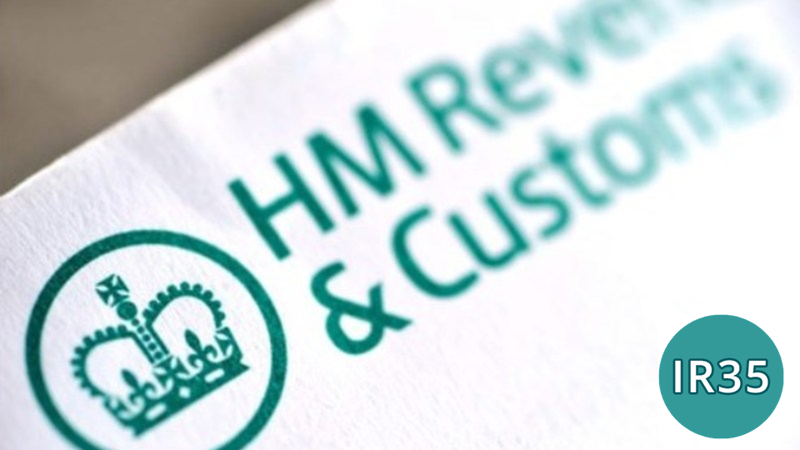
Changes to the Off Payroll Working Rules (IR35)
13 Jun, 20195 minutesUnderstanding IR35IR35 or 'off-payroll working rules' became law in 2000 where it was introd...

Understanding IR35
IR35 or 'off-payroll working rules' became law in 2000 where it was introduced to crack down on freelance contractors who had incorporated themselves into what's known as a Personal Service Company (PSC) that could take advantage of the tax benefits but were still considered to be an employee, aka 'disguised employees'. IR35 was to ensure the contractor assessed themselves properly by assignment paying a similar amount of income tax and NI as if they were employed where they were really a disguised employee.
The liability for getting this assessment wrong generally sat with the PSC.
HMRC made some changes to IR35 in the Public Sector in April 2017 and announced in 2018 they would make similar changes to the Private Sector from April 2020 to stop the perceived tax abuse by companies engaging with what are thought to be disguised workers and paying them as self-employed.
What are the changes I need to know about?
It's important to know that IR35 and the method for determining an IR35 status is not actually changing. What is changing is the responsibility and liability for getting the assessment wrong. From April 2020, for private sector hirers, the responsibility for determining the IR35 status of a PSC will move from the PSC to the company that engages with the PSC (the hirer). The liability for getting the status wrong and / or not deducting and charging the right taxes and NICS will initially move to the fee payer (commonly a recruitment agency) as long as everyone in the supply chain fulfills their responsibilities. This liability currently sits with the PSC.
Should HMRC find that a hirer hasn't taken 'reasonable care' when setting the IR35 status, the liability will be transferred to the hirer whether they are the fee payer or not.
In certain circumstances, the liability can move up the supply chain.
If an assignment is deemed to be inside IR35, the contractor can still be paid via their limited company, but the fee payer is obliged to charge Employers NICs and Apprenticeship Levy and deduct Employees NICS and Income Tax from the payment made to the PSC.
This status determination is only for tax purposes. HMRC states it doesn't apply to employment status; however, claims are already being made by contractors in the Public sector - if they are being taxed as a worker then should they not be treated as a worker and be entitled to holiday pay, auto-enrollment, and other worker rights?
Small company hirers (likely to be the Companies House definition of less than 50 employees) are out of scope of this change. Anti-avoidance measures will be included in the final legislation, and measures will be taken for non-incorporated hirers such as partnerships or public sector entities.
How is IR35 Status determined?
There are a number of pointers towards a PSC being inside or outside for an assignment which are supported by case law. Items such as taking financial risk, there being the right of substitution, mutuality of obligation all point towards whether someone is inside or outside of IR35.
Simplistically, if a contractor and employee are indistinguishable from each other in how they are treated but for the fact one is paid via their PSC it is highly likely they should be deemed to be inside IR35.
How can I ensure I'm prepared for the changes?
First and foremost, you need to make sure you understand the rules and what is likely to deem an assignment to be inside or outside of IR35.
While Meridian are not qualified to give professional advice on these matters, we understand the issues involved and are partnering with legal teams who can offer professional assistance with making determinations regarding IR35 status.
If you would like any further information on the changes to IR35 or would like any help in how to prepare for this change please email IR35@meridianbs.co.uk.














